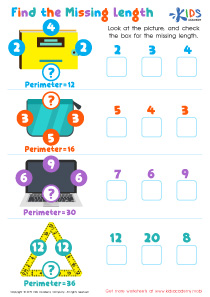Number Recognition Easy Subtraction Worksheets for 6-Year-Olds
4 filtered results
-
From - To
Welcome to our collection of Number Recognition Easy Subtraction Worksheets designed specifically for 6-year-olds! These engaging worksheets combine fun and learning, helping young learners develop essential math skills. Each worksheet focuses on number recognition and simple subtraction, allowing kids to explore numbers while practicing basic math concepts. With colorful visuals and interactive activities, children will enjoy enhancing their comprehension in a playful way. Ideal for classroom use or at-home learning, our worksheets promote confidence and proficiency in subtraction, setting the foundation for future math success. Download and watch your child become a confident math superstar today!
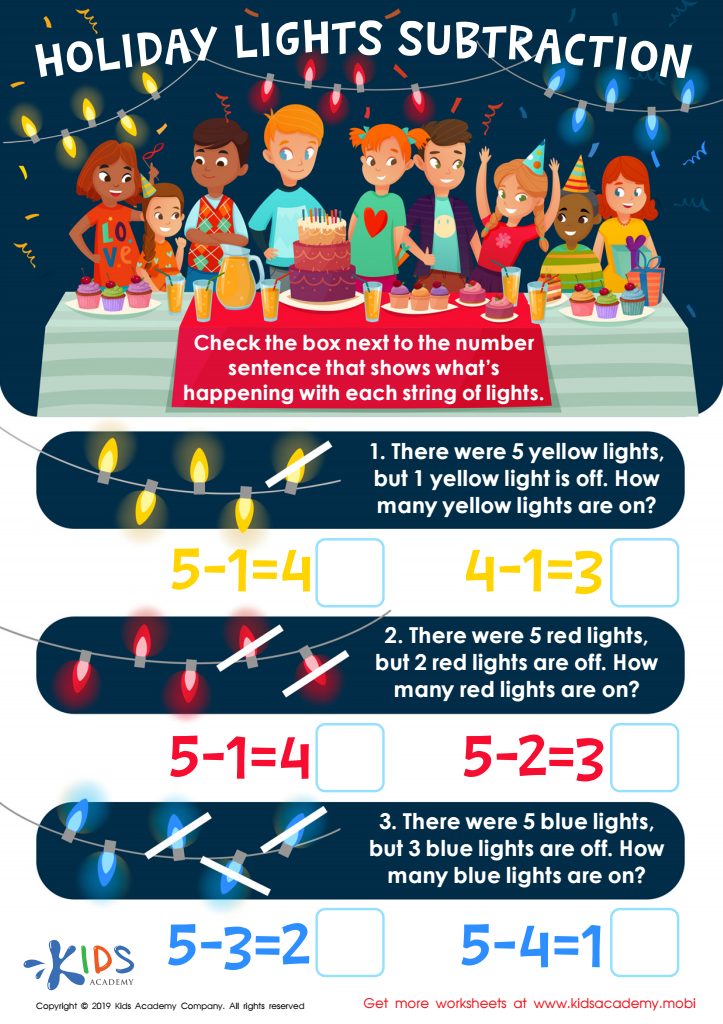

Holiday Lights Subtraction Worksheet
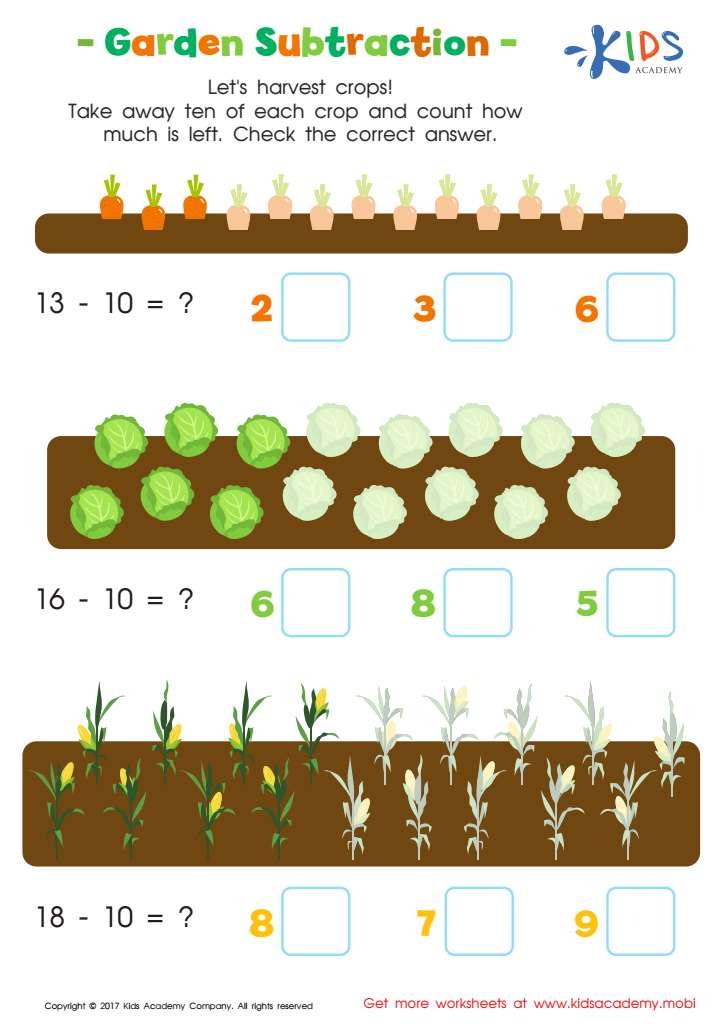

Garden Subtraction Worksheet
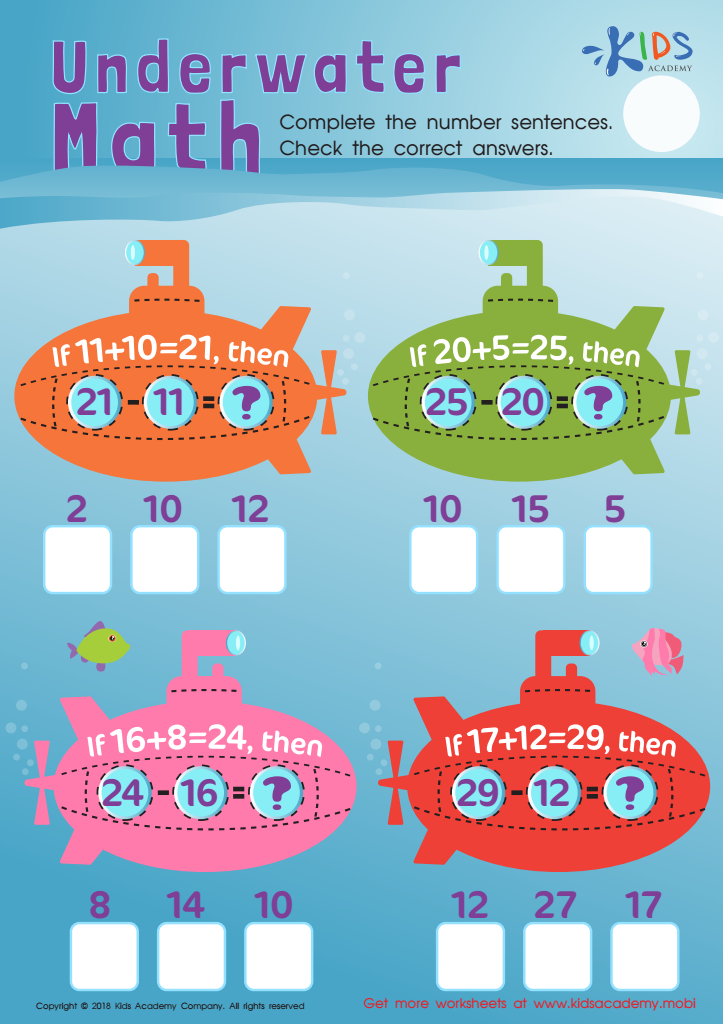

Addition and Subtraction: Underwater Math Worksheet
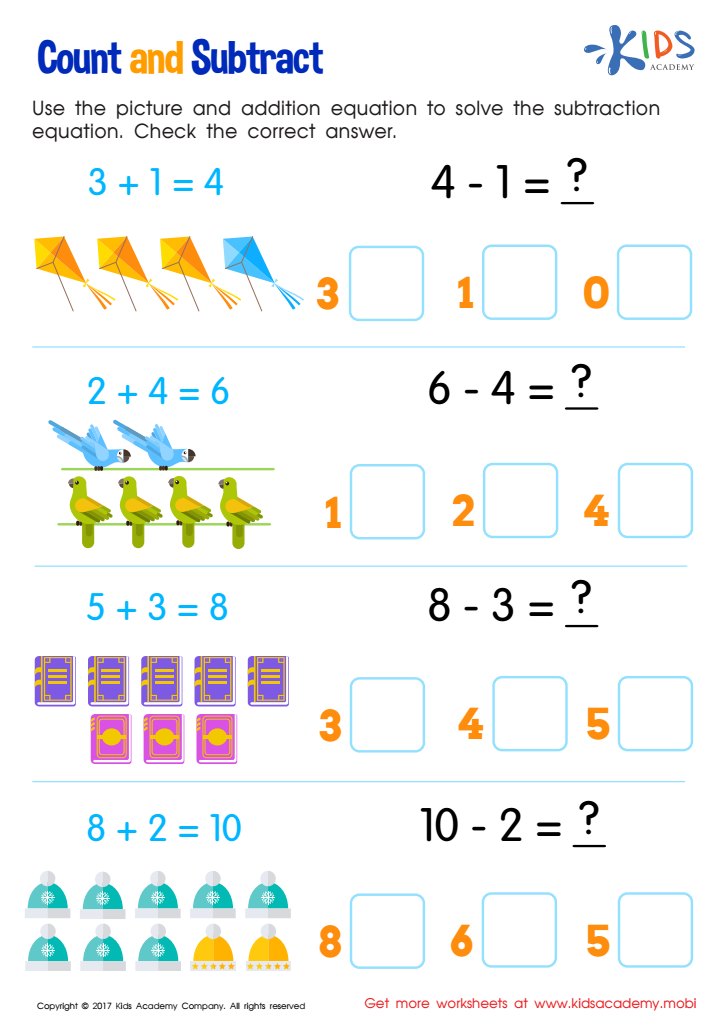

Count and Subtract Worksheet
Number recognition and basic subtraction skills are fundamental components of early mathematics education, and they are crucial for six-year-olds' cognitive development. Parents and teachers should prioritize these areas for several reasons.
Firstly, number recognition lays the foundation for more complex math skills. When children can identify numbers confidently, they are better equipped to understand quantities, patterns, and mathematical operations. This can pave the way for added skills, including addition and number sense.
Moreover, easy subtraction is essential for developing critical thinking and problem-solving abilities. At this age, children are naturally curious and eager to explore the world around them. Simple subtraction exercises stimulate their analytical thinking as they learn to manipulate numbers. Encouraging math conversations at a young age fosters a growth mindset and helps them view challenges as opportunities for learning.
Additionally, early mastery of these skills builds confidence in mathematical abilities, thus reducing anxiety in later years when expectations rise. Both parents and teachers play a pivotal role in creating a supportive learning environment that emphasizes exploration and fun in math activities, ultimately empowering children to become proficient students in mathematics and beyond. Fostering these skills can have a lasting impact on academic success and a love for learning.
 Assign to My Students
Assign to My Students



.jpg)




